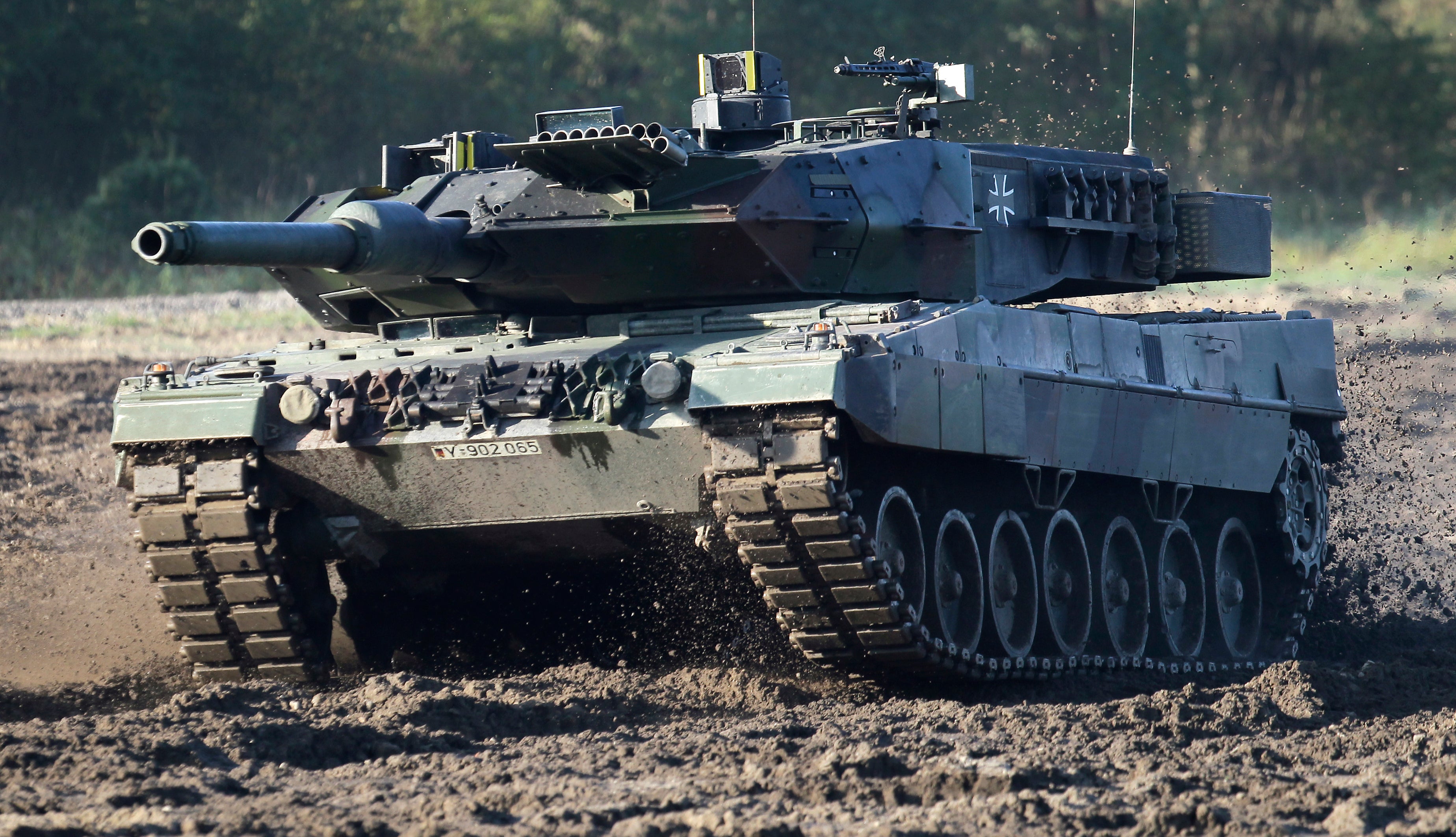Nato nations pledge ‘unprecedented’ military aid to Ukraine – but no German tanks yet
‘I am moderately moderately pessimistic because the Germans are defending themselves against this like a devil protects himself against holy water,’ says Polish PM

A group of 11 Nato countries, including Britain and Poland, have pledged an “unprecedented” raft of new military aid to support Ukraine's war with Russia - but the big question of whether to send heavy Leopard 2 tanks remains unanswered, with Germany yet to lift a veto.
Speaking during a visit to Estonia, the UK defence secretary, Ben Wallace said the UK will be supplying a further 600 Brimstone precision-guided missiles in addition to its latest support package, which includes 14 Challenger 2 main battle tanks.
"In 2023, it is time to turn the momentum that the Ukrainians have achieved in pushing back Russia into gains and making sure Russia understands that the purpose now is to push them back out of Ukraine and to restore Ukraine's sovereignty, which is their right under international law," he said.
"We commit to collectively pursuing delivery of an unprecedented set of donations including main battle tanks, heavy artillery, air defence, ammunition, and infantry fighting vehicles to Ukraine’s defence," a joint statement said.
Poland was sending S-60 anti-aircraft guns with 70,000 rounds of ammunition and was ready to donate a company of Leopard 2 tanks, "pending (a) wider coalition" of Leopard donors, the statement said.
Fearing winter will give Russian forces time to regroup and unleash a major attack, Ukraine is pushing for the Leopard battle tanks, which are held by an array of European nations but whose transfer to Ukraine requires Germany's approval.
A German government source said Berlin would lift its objections if Washington sends its own Abrams tanks. The German chancellor, Olaf Scholz, has been reluctant to send weapons seen as provoking Moscow. Many of Berlin's Western allies say that concern is misplaced, with Russia already fully committed to war.
The two countries tried to resolve the stand-off as US Defense Secretary Lloyd Austin and the new German Defence Minister Boris Pistorius met in Berlin on Thursday. But there was no word on whether they had made progress ahead of a meeting of dozens of allies on Friday at Ramstein, Washington's main European air base.
Ukrainian President Volodymyr Zelensky made thinly disguised criticism of Germany for its stance on tanks. "'I am powerful in Europe, I will help if someone else outside of Europe will also help.' It seems to me that this is not a very correct strategy," he said.
The Ramstein meeting is billed as a chance for the West to give Ukraine what it needs to defeat Russia in 2023 and countries including Canada, the Netherlands and Sweden have already announced armoured vehicles and air defences.
But Kyiv says it needs heavy tanks to fend off Russian assaults and recapture occupied land.
"We have no time, the world does not have this time," Andriy Yermak, head of the Ukrainian presidential administration, wrote on Telegram. "The question of tanks for Ukraine must be closed as soon as possible," he said. "We are paying for the slowness with the lives of our Ukrainian people. It shouldn't be like that."
Berlin has so far blocked allies from sending its Leopard 2 tanks, workhorse of militaries across Europe. Washington and many Western allies say the Leopards - which Germany made in the thousands during the Cold War - are the only suitable option available in big enough numbers.
US officials say they have no plans yet to send the Abrams, which runs on powerful turbine engines seen as using too much fuel for Kyiv's strained logistics system to supply at the front.
Poland and Finland had already said they would send Leopards if Germany lifts its veto. In a sign of mounting frustration, Poland suggested it might do so even if Germany tries to block it. Poland's prime minister said on Thursday he was "moderately pessimistic" about Germany giving other countries permission to re-export the tanks.
"I am moderately sceptical, moderately pessimistic because the Germans are defending themselves against this like a devil protects himself against holy water," Mateusz Morawiecki said.
Russia has responded to the prospect of more weapons for Kyiv with threats of escalation. Dmitry Medvedev, a Vladimir Putin ally who served as president from 2008 to 2012 when Mr Putin moved to become prime minister, made one of Moscow's clearest threats about what follows losing the war.
"The defeat of a nuclear power in a conventional war may trigger a nuclear war," Medvedev said. "Nuclear powers have never lost major conflicts on which their fate depends."
Ukraine and Russia have both relied primarily on Soviet-era T-72 tanks, which have been destroyed in their hundreds in 11 months of fighting. Kyiv says better armed and protected Western tanks would give its troops the mobile firepower to drive out Russian troops in decisive battles.
After big Ukrainian gains in the second half of 2022, the frontlines have largely been frozen in place over the past two months, with neither side making big gains despite heavy casualties in intense trench warfare.
Yevgeny Prigozhin, leader of the private Russian mercenary force Wagner which has taken a leading role in fighting near the eastern city of Bakhmut, claimed on Thursday his forces had seized the village of Klishchiivka on Bakhmut's outskirts. Kyiv has previously denied that the settlement has fallen.
Reuters






Join our commenting forum
Join thought-provoking conversations, follow other Independent readers and see their replies
Comments